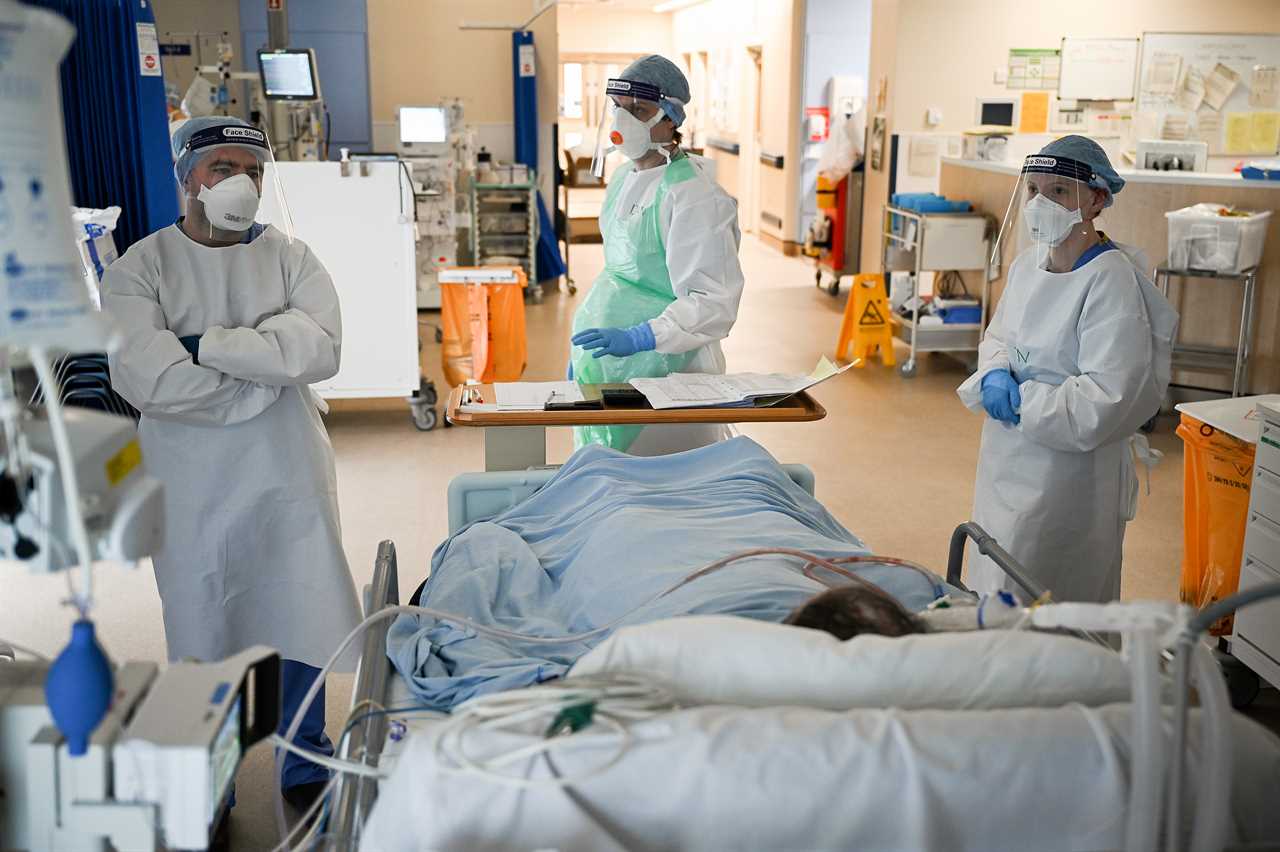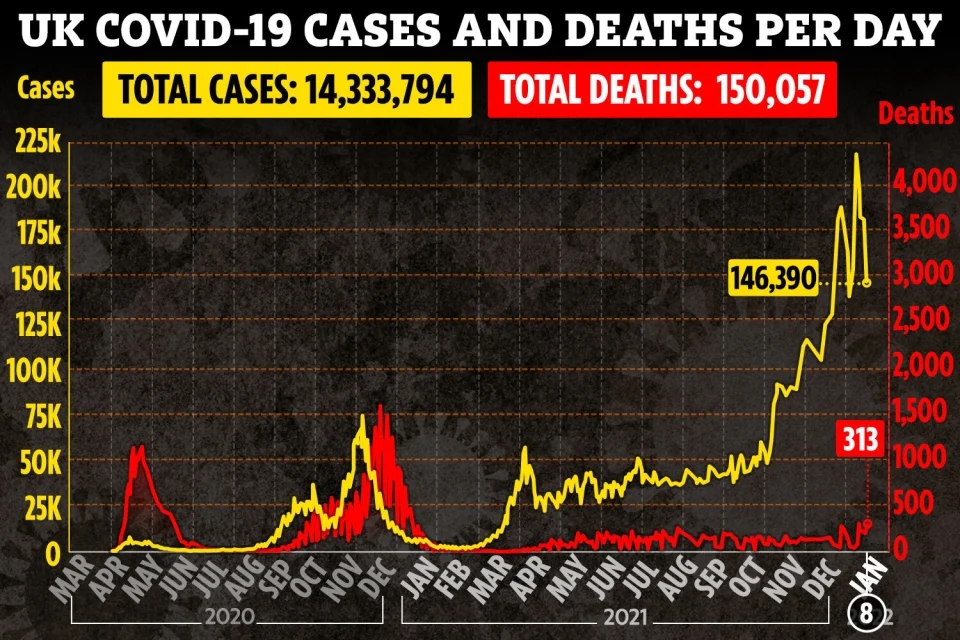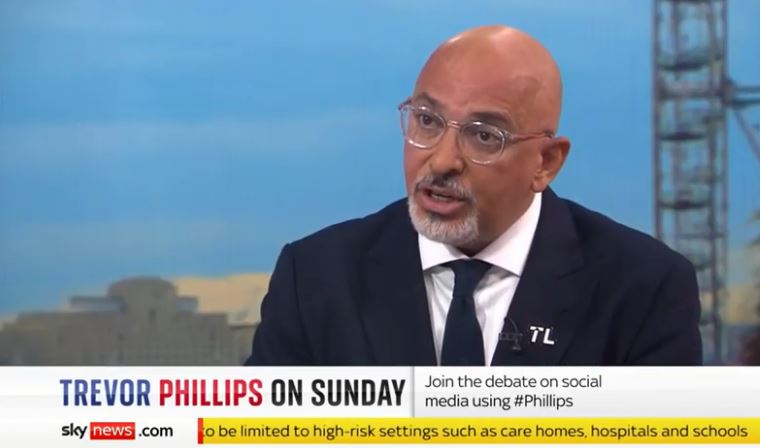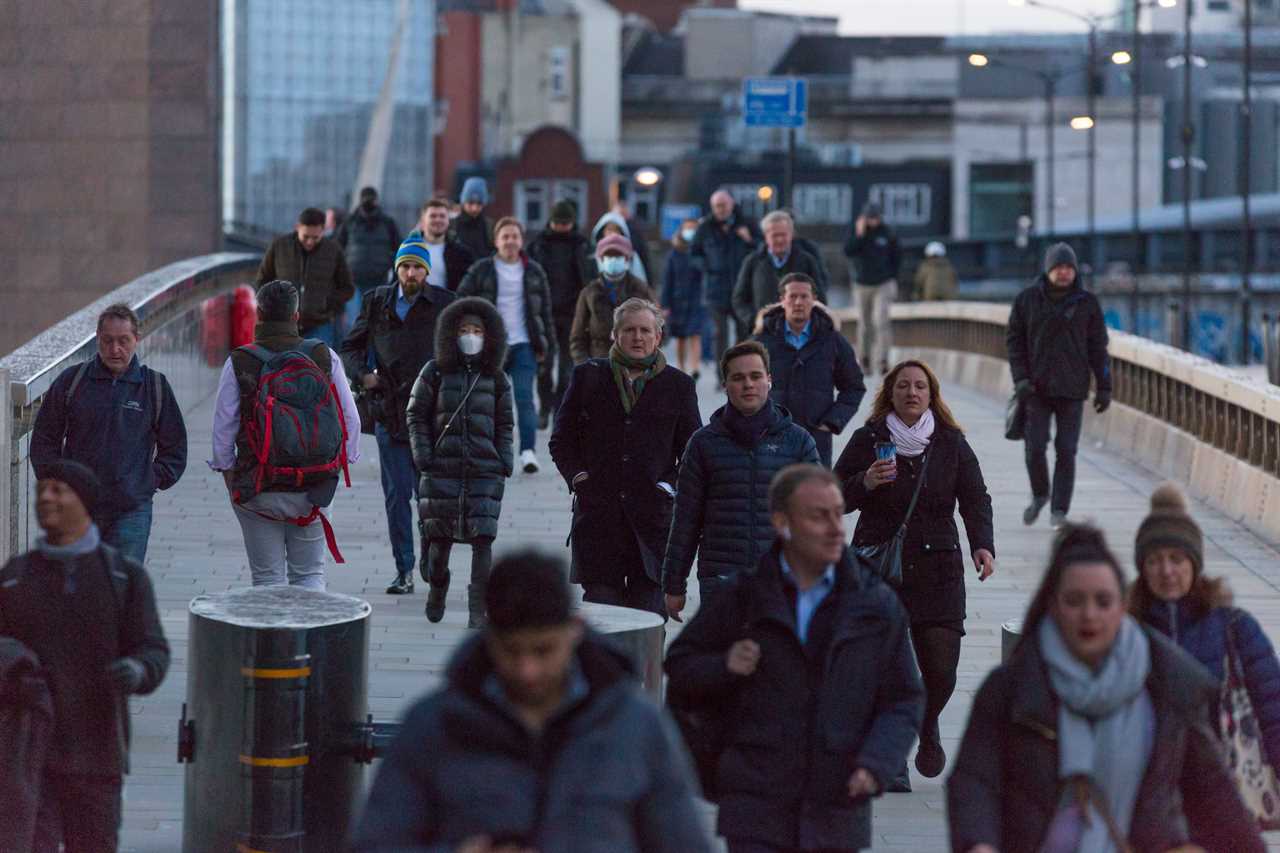THE numbers of hospital patients in critical condition are comparable with those before the pandemic as Covid cases “peaked on New Year’s.”
London’s regional director for Public Health England Professor Kevin Fenton explained that out of 130 hospital trusts, 24 have declared a critical incident while before the virus the number stood at 23.


Speaking to Sky News’ Trevor Phillips, he said: “In 2017-18, 23 declared a critical incident so it is a mechanism that the NHS uses very well in times of very high pressure on the system.
“The NHS is very good because they have this ability to digital passport staff between trusts that’s also capable.
“We are launching eight Nightingale sites, we are probably going beyond that increased capacity.”
It comes as a string of hugely positive studies show Omicron IS milder than other strains, with the first official UK report revealing the risk of hospitalisation is 50 to 70 per cent lower than with Delta.
Covid booster jabs protect against Omicron and offer the best chance to get through the pandemic, health officials have repeatedly said.
Trending In The News’s Jabs Army campaign is helping get the vital extra vaccines in Brits’ arms to ward off the need for any new restrictions.
Prof Fenton added that the case rates in the capital are dropping but warned the “critical phase” of the pandemic is not yet over as data showed one in ten Londoners are still infected with the virus.
“We think we may have passed or are at the peak. Data from the ONS suggests that the peak may have occurred at or just about the new year period.

Follow our Covid live blog for all the latest updates
“And we’re seeing reductions in overall case rates across the city and the prevalence of infection within the community.
“But remember that infection levels are still very, very high. And the ONS figures suggest that nearly one in 10 Londoners are still infected with the disease.
“So it means that we’re not yet out of this critical phase of the pandemic, although we may well be past the peak.”
It comes after the grim number of official Covid deaths in the UK passed 150,000 yesterday– however, cases kept falling for the fourth day in a row.
A record of three million Brits tested positive for Covid over the New Year’s period but data, from the Office for National Statistics, showed the Omicron outbreak was slowing down in the capital.
Data suggested that one in ten people in London were hit with the super spreading virus in the week running up to December 31, with one in 15 people testing positive in England.
Meanwhile, around half a million vaccination appointments are being made available online in England for the 12 to 15-year-olds during January, a senior doctor has said – with slots available at around 500 walk-in sites and 300 centres.
Experts say Britain could be the “most immune country in the world” as data show around 98 per cent of over 15s in the UK have some resistance to the Omicron variant.
Dr Raghib Ali, Clinical Research Associate, MRC Epidemiology Unit, University of Cambridge said that it could be why hospitalisations with the virus remain low but encouraged Brits to continue to follow rules to not risk overwhelming the health service as staff absence is a “major problem”.
Meanwhile, the Education Secretary said the isolation rules will be reviewed and stated that cutting the isolation from seven to five days would be “more helpful”.
Nadhim Zahawi told the Sunday Times: “The UK Health Security Agency (UKHSA) have said they want to review it, so we will stick to seven days but if they review it and say they will bring it down to five days that is even better for me, it’s even more helpful.”
The Scottish Health Secretary Humza Yousaf has said Scotland is not considering further reducing its quarantine period after UK Government Education Secretary Nadhim Zahawi backed dropping England’s quarantine from seven days to five.
Mr Yousaf told BBC Breakfast it had been risky for Scotland to reduce its isolation period from 10 days to seven.








